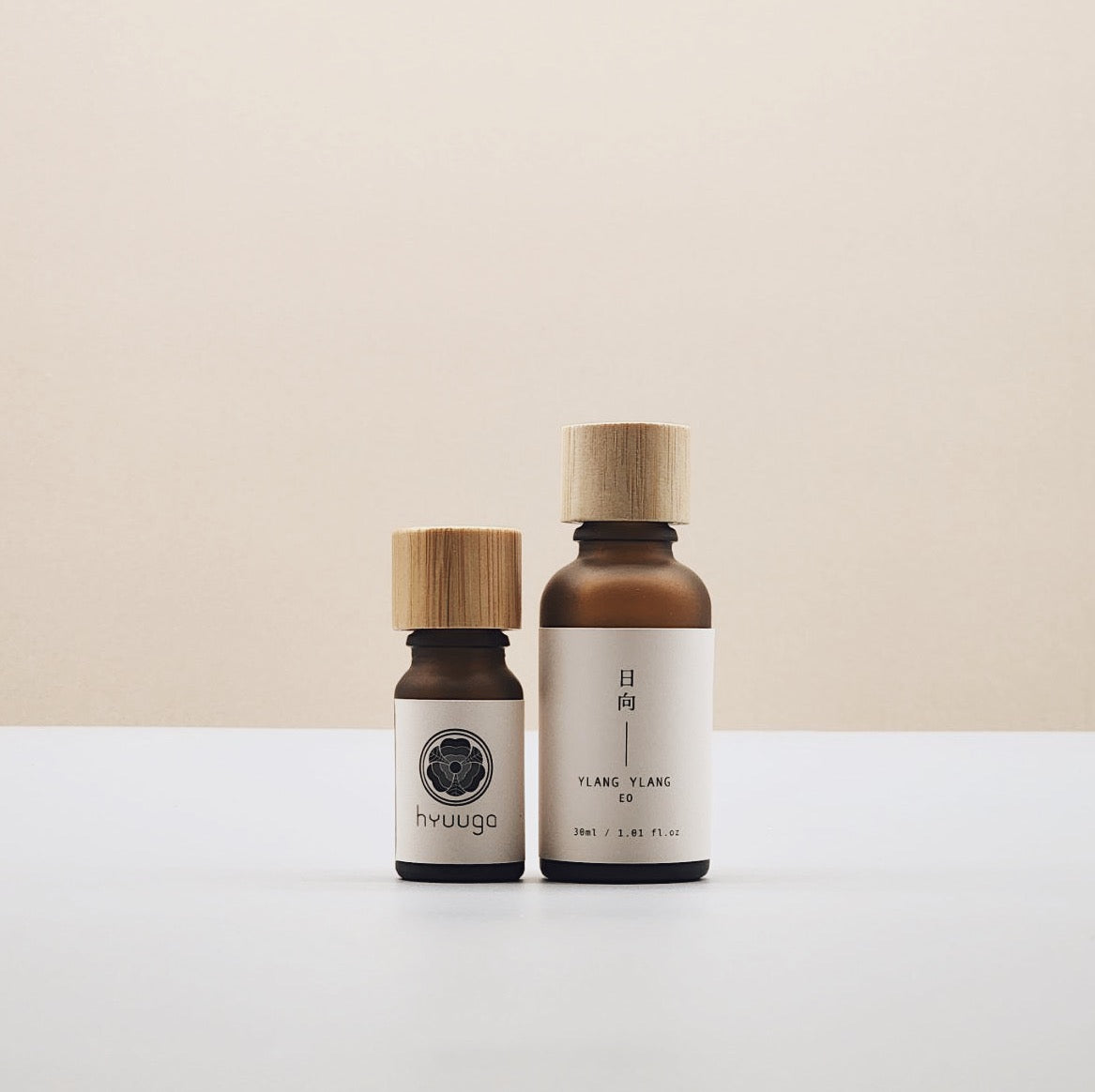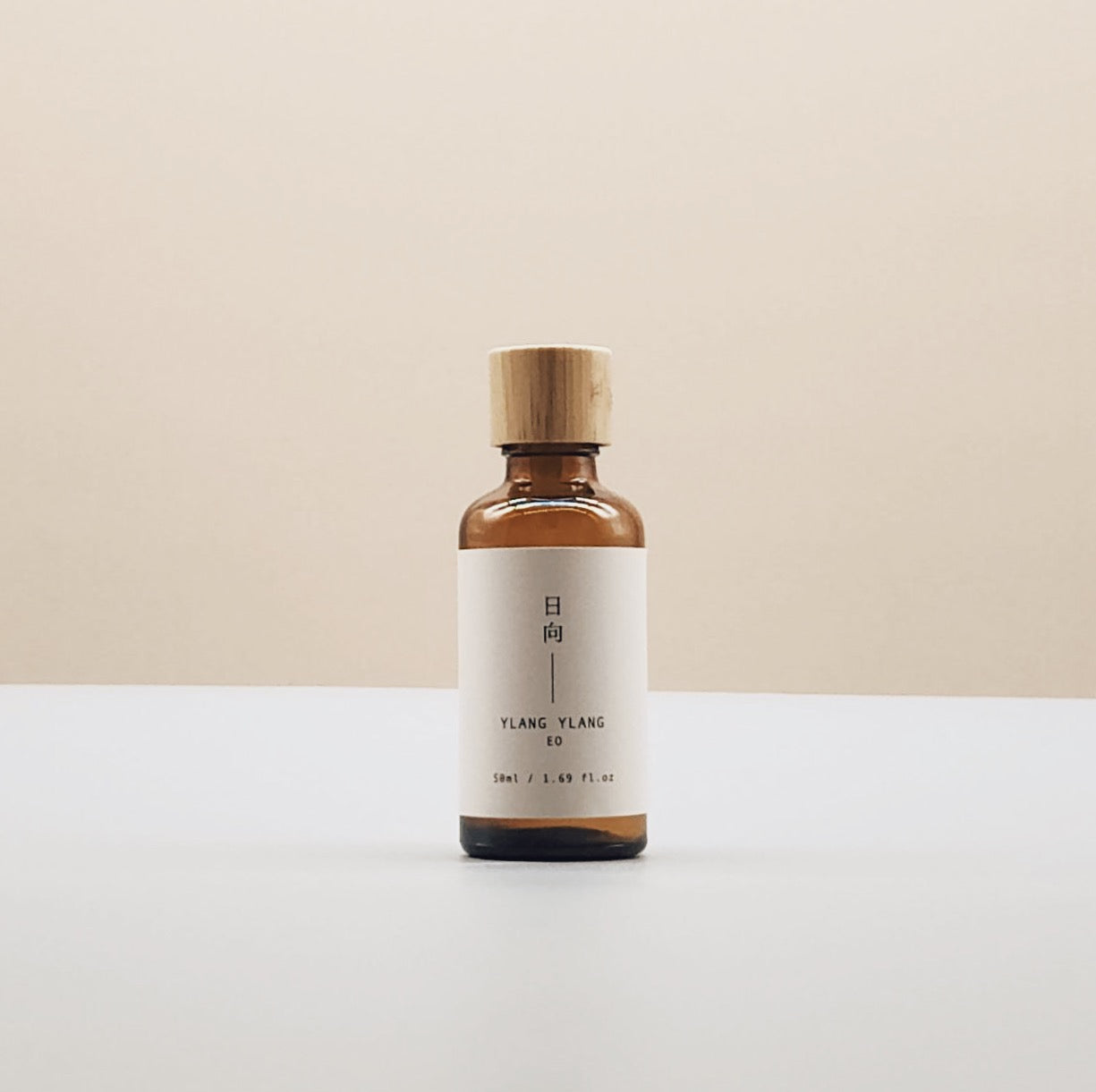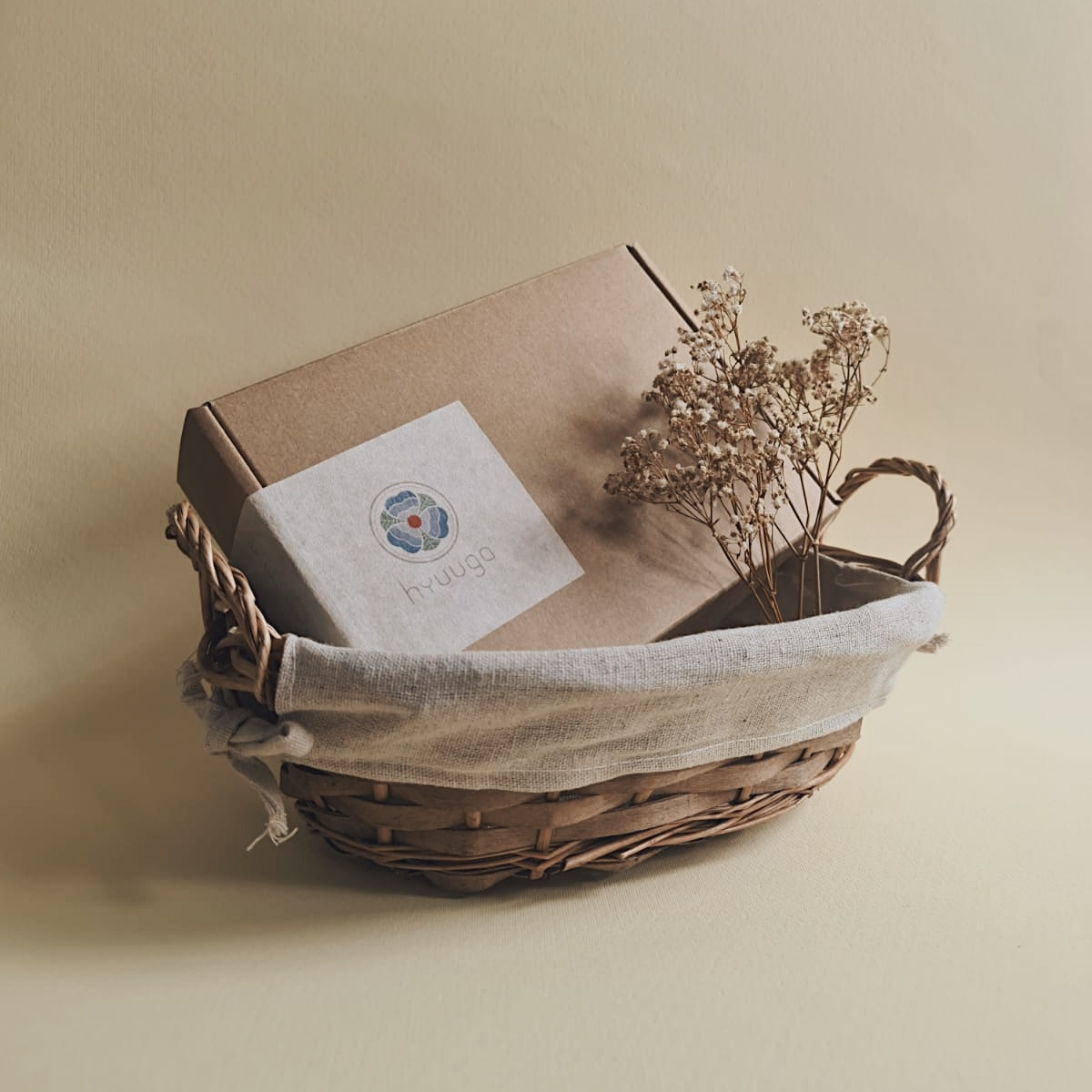Ylang Ylang Essential Oil
- Regular price
- $30.00 SGD
- Regular price
-
- Sale price
- $30.00 SGD



Botanical name: Cananga odorata
Ingredient: 100% pure essential oil
Extraction method: Steam distillation
Country of Origin: Indonesia
Aroma: Floral
Blends well with Lavender, Rose, Geranium, Bergamot and more
Handcrafted in small batches in Singapore
In Indonesia, Ylang ylang flowers covered the marriage beds of newlyweds. This tradition probably stems from its use as an aphrodisiac and sexual stimulant. For centuries, people in tropical cultures have scented coconut oil with Ylang ylang for its beautifying benefits in skin treatments. They also smoothed it over their skin to soothe insect bites.
Tropical women famous for their thick, shiny, lustrous hair have used Ylang ylang in hair preparations for hundreds of years. Ylang ylang reputedly helps control split ends. During the Victorian era, a hair treatment called Macassar oil contained Ylang ylang. This preparation supposedly promoted hair growth by stimulating the scalp. In Samoa and Tonga, indigenous cultures used Ylang ylang to treat colic, constipation, ingestion, and stomach aches. Throughout the tropics, many people have regulated their respiration and heart rates with Ylang ylang
In Europe, aromatherapists, massage therapists, and medical professionals prescribe ylang ylang to lower blood pressure, regulate respiration, and calm heart palpitations. They say that Ylang ylang is soothing to the nervous system. Because it eases muscle spasms and relaxes tense muscles, it provides relief for backache.
In England, some people with epilepsy sniff Ylang ylang oil to avert attacks or to bring seizures under control. Studies indicate that it may benefit certain cases of diabetes. Ylang ylang oil is often helpful in treating female disorders such as irregular periods, menstrual cramps, and premenstrual syndrome (PMS). It calms and comforts women going through menopause. It also soothes the inflammation and irritation of psoriasis, eczema, and other types of dermatitis.
Ylang ylang oil benefits and types of skin but is especially effective in treating oily skin because it balances oil production and reduces excessive oiliness. By fighting a bacterial infection, it helps control acne and blemishes. Ylang ylang oil softens and smoothes skin and stimulates new cell growth, It reportedly can ward off wrinkles and premature aging because it relaxes the facial muscle and releases facial tension that can contribute to lines, wrinkles, and sagging skin.
European psychotherapists treat depression, emotional exhaustion, insomnia, and nervous tension with Ylang ylang oil. It relaxes and calms excited emotional states. Ylang ylang oil subdues anxiety, stress, and stress-related disorders. It reduces worrying and tension and stabilizes moods. It minimizes aggressive behavior, anger, fear, and frustration while fostering feelings of confidence, love, security, and serenity. It stimulates enthusiasm and can provide comfort during times of change.
Ylang ylang oil encourages positive emotions and feelings helping to improve harmony and confidence. It awakens an appreciation of self and others, as well as of the beauty of life. It helps you attract and recognize enjoyable experiences and pleasure in your everyday life. It inspires creativity, intuition, and understanding, and helps both men and women to enjoy their feminine qualities. Ylang ylang oil arouses sensuality, creates erotic and euphoric moods, and induce deep relaxation.
Tall and willowy, the majestic Ylang ylang, or perfume, tree displays clusters of large star-shaped flowers on downward drooping branches. These unusual flowers range in colour from white to pink to yellow to yellowish green. Their fragrances are fresh and floral, sweet and seductive, exciting, and exotic. This refreshing scent is relaxing, almost intoxicating.
Originally native to Southeast Asia and the Philippines, the “flower of flowers” the Malay meaning of Ylang ylang now thrives throughout the tropics. Blossoms of trees growing in the wild produce little fragrances, but when the trees are carefully tended, their scent intensifies.
Your Shopping Cart is Empty
Browse our latest collection or check your saved favorites to add more items to your cart.
Manage your profile, track your orders, and enjoy a seamless shopping journey with us.
Botanical name: Cananga odorata
Ingredient: 100% pure essential oil
Extraction method: Steam distillation
Country of Origin: Indonesia
Aroma: Floral
Blends well with Lavender, Rose, Geranium, Bergamot and more
Handcrafted in small batches in Singapore